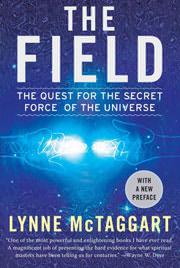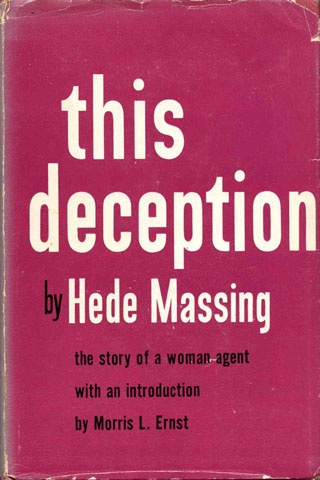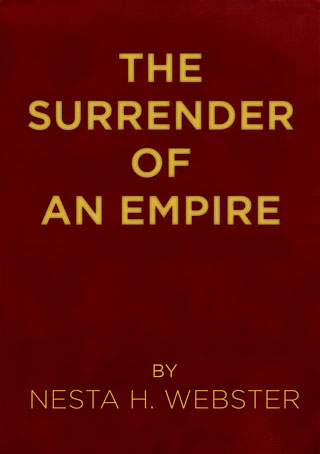Dumb-ocracy
 A while back, I was trying to think of a word to describe the fact that a democracy is essentially a concept that relies upon the lowest common denominator in a population’s thinking… to determine decision-making for all. A change in the existing spelling worked all right for me personally (see above), but it certainly wouldn’t work for those who regard democracy as a high-minded idea. Here’s a quote that is attributed to Thomas Jefferson on the concept:
A while back, I was trying to think of a word to describe the fact that a democracy is essentially a concept that relies upon the lowest common denominator in a population’s thinking… to determine decision-making for all. A change in the existing spelling worked all right for me personally (see above), but it certainly wouldn’t work for those who regard democracy as a high-minded idea. Here’s a quote that is attributed to Thomas Jefferson on the concept:
“A democracy is nothing more than mob rule, where fifty-one percent of the people may take away the rights of the other forty-nine.”
Quite so. On the surface, democracy sounds like an ideal, since the people of a country have the opportunity to vote, which suggests that they get the government that they want. In reality, nothing could be further from the truth.
To begin with, as Jefferson states so well, anywhere up to 49% of the people clearly do not get what they want in a majority-rule situation. However, if we point this out in the midst of any voting group, someone will invariably snort, “Don’t be ridiculous! The majority must rule. If we could all have something different, we’d have chaos!”
Fair is Fair
In so saying, the supporter of democracy as an ideal system presumes that he himself is a member of the majority, and that is good enough for him. All others must simply go along. In socialistic thinking, this is exemplified by the frequent use of the word “fair.” It’s a wonderful word, as, to dispute the majority view suggests that one is “unfair,” and therefore his dispute should be discounted. This word seems, at present, to be most commonly used in describing income tax. The socialistic view is that the rich need to pay “their fair share.” Sounds reasonable, doesn’t it? Trouble is, no socialist will ever be willing to state exactly how much that fair share is.
I believe that there are two reasons for this. First, I don’t believe that he has ever really thought in terms of percentages. Second, even if forced to state a “fair” percentage, he would be reluctant to do so, as he may well wish to have the option to increase the percentage from time to time. The amount that a socialist considers to be a fair share can always be defined as, “more than they are paying now.”
When was this concept of majority-rule first hatched? Well, it has apparently been around awhile. As Aristotle comments,
“In a democracy the poor will have more power than the rich, because there are more of them, and the will of the majority is supreme.”
The Unfair Uninformed
Fairness aside, there is still the question as to whether majority-rule is an effective means of governance. Let’s follow that thought along for a bit…..
There are two schools of thought on reaching a sound conclusion. The first is to pick the most knowledgeable people (who would be in the minority in any group) and let them create a solution. The second is to have everyone vote, even if some of them have little or no knowledge or understanding of the problem. While this seems “fair,” as it gives everyone a chance to vote, it is certainly not fair to those who have made the effort to educate themselves on the subject and are therefore more likely to know the ideal answer. As Winston Churchill commented,
“The best argument against democracy is a five-minute conversation with the average voter.”
Mr. Churchill was not alone in his belief that the democratic concept is inherently flawed. The following quote has been attributed to Scotsman Alexander Tytler in 1797, but may have been written much later, by another author:
A democracy is always temporary in nature; it simply cannot exist as a permanent form of government. A democracy will continue to exist up until the time that voters discover they can vote themselves generous gifts from the public treasury. From that moment on, the majority always votes for the candidates who promise the most benefits from the public treasury, with the result that every democracy will finally collapse due to loose fiscal policy, which is always followed by a dictatorship.
It does seem to be true that, when seeking solutions, it is not in the nature of the general public to focus on a truly effective solution if that solution happens to come with unpleasant realities.
For example, for most of us today, the biggest problem is the economy, and, whatever country we live in, we tend to listen to the members of our political parties squabble over approach “X” or approach “Y”, when in actual fact, the only true solution may well be “Z”.
The voters almost invariably prefer the easy way out – the temporary fix – and politicians respond in kind by throwing money at the problem. Fiscally, this approach leads to insolvency.
The Easy Way Out
Why do politicians take the easy way? The answer is that, invariably, no politico wishes to state that the only solution is to allow a crash, as it would expose the fact that he had been a party to imprudent governance. After all, that may well lead to his being ousted in the next election. And, to my knowledge, the politico has not yet been born who would admit, “I’ve really made a mess of things economically, and now you’re all going to suffer. I’d appreciate if you would vote me back in anyway.”
No, unfortunately, every politician who has been complicit in a nation drinking economic poison will avoid admitting that the solution is to purge the system. He will, instead, recommend the consumption of more poison in order to delay the inevitable.
And so we come to 2012 – a new year, and one in which the governments of Europe and America have led us to the brink of economic and social collapse. If we need a mental picture that sums up the present situation, we can picture a man in a barrel in the Niagara River, about to go over Niagara Falls. On the barrel is painted the word, “Dumbocracy.”
So, what am I suggesting here?
Am I suggesting that we do away with voting entirely and leave it to the best and brightest to make the decisions?
Well, ideally, that would be a good idea, but unfortunately, historically, whenever the best and brightest have formed the locus of decision-making, they have been quickly replaced by others who have less talent and less integrity.
Occasionally, as in Plato’s Athens, and again in 18th Century America, the concept arises of citizens having the opportunity to be part-time or temporary legislators for the good of the country, but providing them with little direct self-benefit. This is about as close to an ideal as man has come, thus far.
However, as in both Athens and America, the situation quickly deteriorated as, once in office, politicians wish to stay in office. They seek to allow themselves indefinite stays, so long as they continue to be elected. Along the way, they vote for greater salaries and/or benefits for themselves. Their loyalty is then no longer to a system that will allow them to run their farms and businesses effectively… but… to the advancement of the government itself.
Shopping for Governments
Democracy only works when it is administrated by people of integrity, and this period is brief in any country. Therefore, the question really is not what form of government to support. The question is where to go to find a jurisdiction with a government that is presently liveable. At any point in the lives of most free-thinkers, most of the world’s democracies are likely to be corrupt. The one choice that is available, therefore, is to go to countries presently near the beginning phase in their political evolution and which are still on the upswing.
We shop around for a car we like. We shop around for a good restaurant to eat in. If we apply the same logic to choosing a domicile, we just may find one that is closer to our personal ideal than where we presently live. If the reader considers his idea of “country” to be more of a concept than simply a loyalty to a particular piece of real estate… at some point, he may wish to go shopping.








